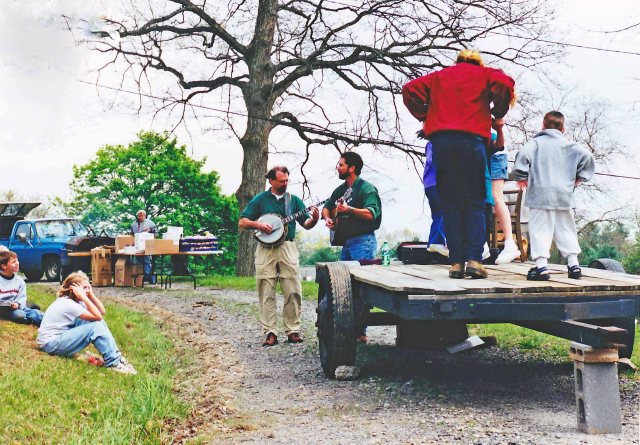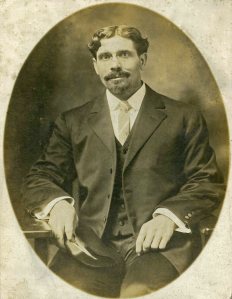The very first time I first stepped onto the grounds of the former Eliada Orphanage in Asheville, N.C. I knew it had a story to tell, but I wasn’t sure if I was the one meant to tell it – until now. My first love of this place has always been its rolling beauty: the lay of its land and the slope of its hills. But uncovering the stories of the children who grew up here and walked its difficult path has drawn me back, again and again, over these many years.
For over a century this place has been a shelter, a refuge for the children who needed a place to claim them when no one else would, or could. In this new millennium, as the needs of the region and society have changed, Eliada has changed along with them, caring for assorted youth with a myriad of social issues and needs. The organization has reinvented itself, but it is still a home on the hill, a safe haven meant to nurture, defend, and protect. In 1999, on the occasion of their upcoming centennial, Director Stewart Humphrey hired me to gather the stories of the children who had grown up at the orphanage. After having served as CEO for over twenty years, he wanted to provide a permanent and lasting record, a testament of sorts, for the children whose only home had been at Eliada.
I quickly discovered that many of the alumni had distanced themselves, although I wasn’t sure why. My job was to reunite them with their past, listen to their stories, and try to bring them back “home.”
Although there have been several books written about Eliada, the last one was published almost six decades ago. Still, the previous authors and I differ in one very important way. I arrived as both an outsider and a non-believer to their world of evangelical Christianity, the very heart and soul of Rev. Compton’s organization.
While at first it seemed a hindrance, I soon discovered that it gave me a distinct advantage. I believe that Stewart wanted someone with an outside perspective who would not hesitate to look behind every door while gathering the Eliada story. I also believe he trusted me to use the information I gathered with the utmost discretion.
Previously, I had been an interviewer for The Survivors of the Shoah Visual History Foundation, the organization founded by Steven Spielberg to record the testimony of the remaining Holocaust survivors. Those interviews were meant to ensure that the true story about the 6 million Jews killed in the Nazi death camps is never forgotten.
But here, I discarded any professional distance between the alumni, their story, and myself. I schemed to prevent their beloved mountain from being sold off for low cost housing. I dug around and stirred up painful memories that had lain dormant for decades. I asked them to let me document both their triumphs and their tragedies, and they in turn welcomed me into their big, dysfunctional family. They spoke openly, if guardedly, because they wanted to make sure their stories were told.
And so I found my place in their past. I slept in their homes, ate at their tables, sung their songs, heard their prayers, climbed their mountain, and helped to bury their dead. I fully immersed myself in their extraordinary story.
Changing Times
More then a decade has passed since I started this oral history project, and there have been many changes at Eliada since then. Mark Upright, hired as president/CEO in 2002, has been instrumental in guiding this organization into the 21st century. He has revitalized the campus, implemented new and innovative programming, and encouraged every member of the extended Eliada Family to believe that they can succeed at any task. Mark sent me this e-mail after he first arrived:
“Whenever I hear someone say that one man cannot make a difference, I tell them the story of Dr. Compton and how he changed the lives of thousands of children and staff. His mission still continues today as we care for ‘the last, the lost and the least.’ I believe that Eliada will always have an important role in Western North Carolina ensuring two important missions: first, to help children succeed, and secondly to demonstrate that miracles occur through God’s love and grace.”
“May God guide your heart as you tell these remarkable stories.”
–Mark Upright
The profiles and interviews I have included here tell the remarkable story of Rev. Lucius Bunyan Compton, a few of the children who grew up under his care, and the enduring institution where his unshakable faith in God remains alive and well.
— Clifford B. Davids (November 2012)
——————————

Cliff Davids (guitar) and Stewart Canter (banjo) perform at the Eliada Founder’s Day Celebration in April 2000
——————————





Cliff- This is a great story about the part of your life that has now become a part of my life when I was at Eliada. You have walked in and given a new face to Dad Compton and his children, and have provided a window into our past. My hope is that there will be many people who will learn from your dedicated telling of our history. Yes we all have stories to tell, and as you mention, its a tough road bringing life to what happened so long ago. Many thanks for your help.
Great to read this story of Eliada. I had the privilege of serving on the Board in the sixties. Sure happy to know of its continued ministry to children and the faithful people that have maintained Eliada for all of these years.
Don Bailey
You people have no idea what happened at Eliada. Us kids were nothing but a number. We were fed, housed, and that was about it. Many a blind eye was turned to what went on behind closed doors. Many a child cried silent tears because no one wanted to know the truth. You shoved God down our throats while ignoring what his love truly was. And you wonder why no one wanted to talk to you?
Anita–I was also at Eliada. I lived there in the late 70’s. We all have our stories to tell, and that’s why we have the alumni group. We meet and talk about our lives there. It seems to help some to meet with old friends and talk about the way we all grew up. You are right, people don’t have a clue because they were not there.
If you would like to come, our next meeting is scheduled for November 15th at 12 noon at Denny’s on Patton Avenue in Asheville. You can also call me at (828) 778-0068.
Hi, I am trying to locate any information on my great grandmother who possibly resided at this home in the early 1900’s. My best guess is that I am looking somewhere between 1901 and 1910. She also had two brothers there at the home. Does anyone have any idea how I could possibly locate any records for that time period?
Hey, Amy. My name is Nancy Moore, and I’m the president of the Eliada Home Alumni Association. I will try to help you. We use the Ramsey Library Special Collections at UNCA to archive all our alumni pictures and other documents. You can also call Eliada directly at (828) 254-5356 and ask to speak with someone in the front office if you are seeking family information.
We are having an alumni reunion at Eliada on May 15th, 16th, and 17th of 2015, and you are welcome to attend. If you have any more questions, please feel free to call me directly at (828) 778-0068.
Oh, how I wish I had researched this site a year ago! Amy Anderson, I have also have been curious about my maternal grandmother and her baby brother Jack. They both arrived at Eliada in 1919. She lived there until 1923, and Jack was there until 1935.
I have correspondence from Eliada back in 1989, and before that in 1979. However, I never knew my great uncle Jack, and I have always wondered what became of him since he lived there most his life. I could have reached out to his children. What a story indeed.
I know my grandmother suffered from loneliness and the loss of her family. It was not a good time for anyone. But they were fed, clothed and educated. Thank the Comptons and God for that.
Very nice! I am from the new generation of Eliada children.
Gabbi – I enjoyed meeting you at the Eliada Alumni Reunion this past weekend. Have a great summer, and be sure to keep up the good work at St. Andrews University this fall!
My grandparents lived at Eliada and took care of the children until something happened that my grandfather couldn’t handle. I never knew what exactly happened, but I think it had to do with one of the men abusing the kids. I have some wonderful pictures from then and my grandparents kept in touch with a few of the kids.